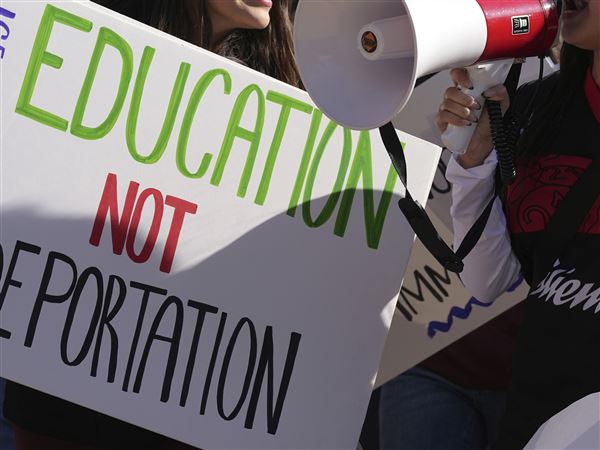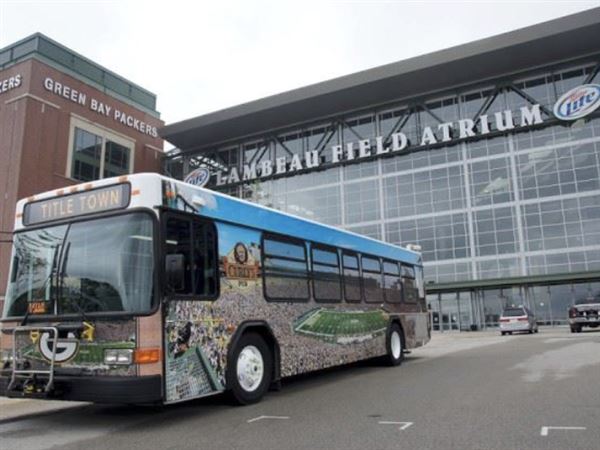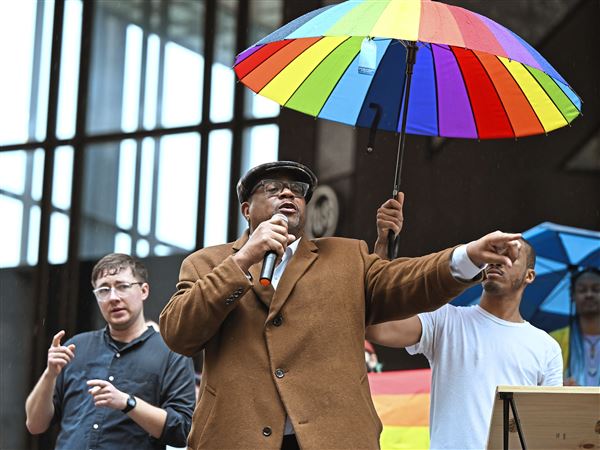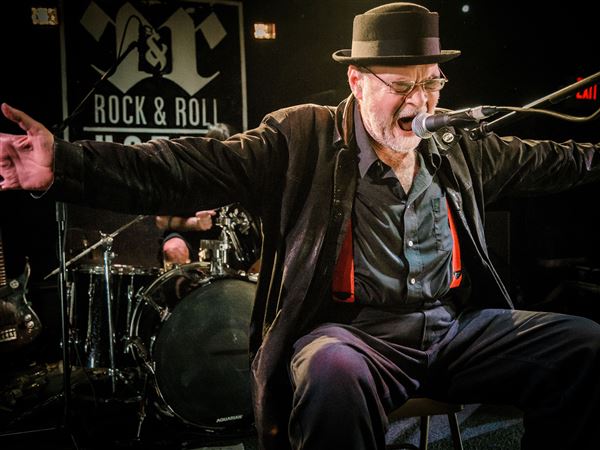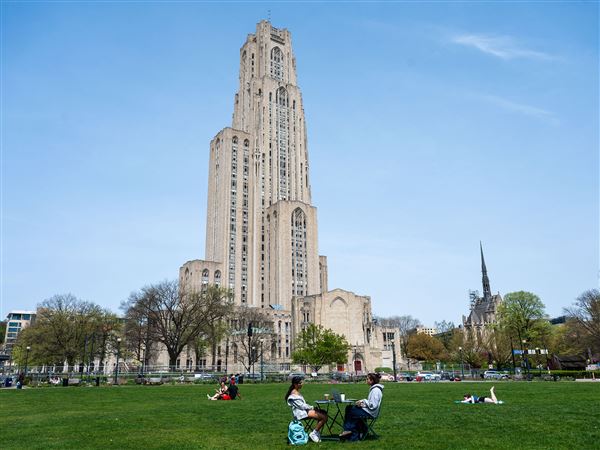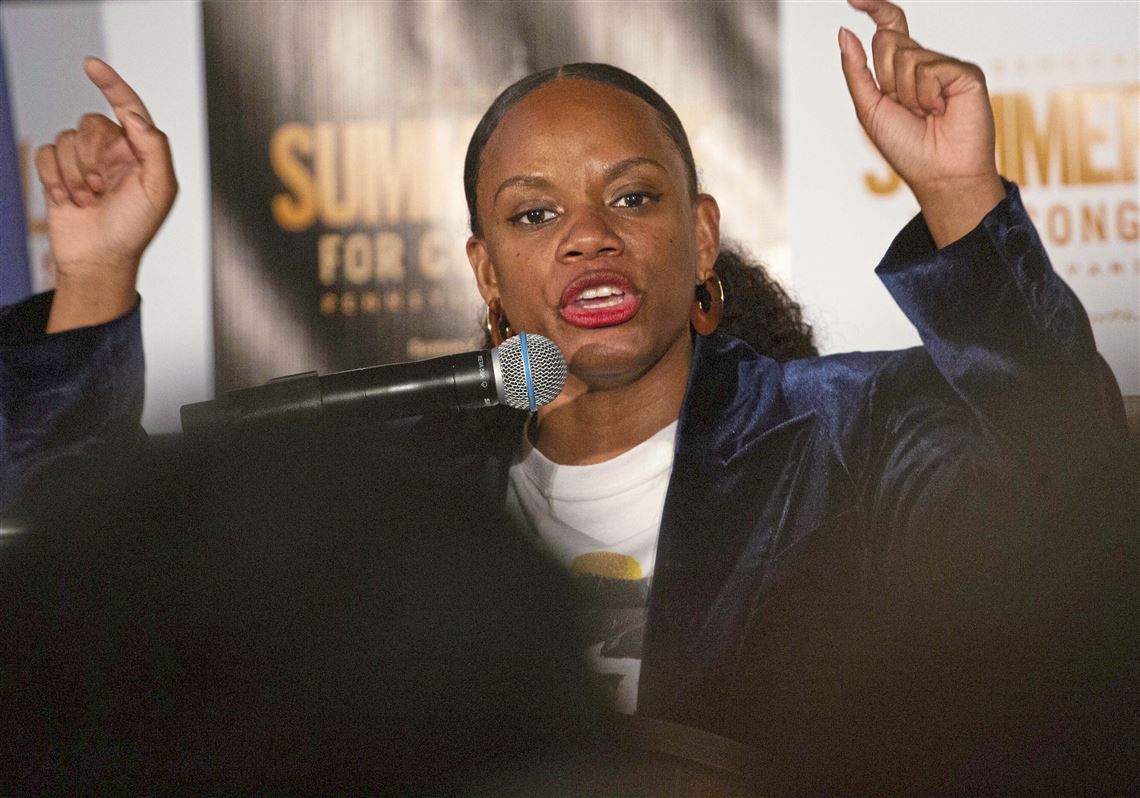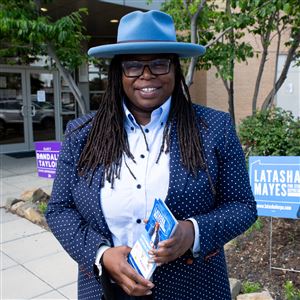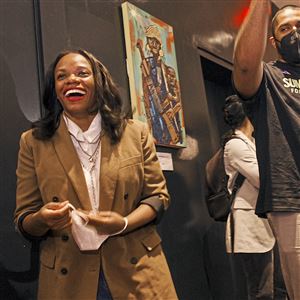Time and time again, Summer Lee’s brand of political movement-building has removed bricks from Allegheny County’s Democratic establishment, loosening the foundation that the old guard — the status quo — has had for decades on who gets to run for office and when.
Consider Ms. Lee’s bid for Congress the biggest strike yet. Her win in May’s Democratic primary over Pittsburgh attorney Steve Irwin — like her electoral wins in the past — was fueled by “unparalleled” grassroots energy, she said, and in the end, mainstream Democrats underestimated the size of her movement once again.
In an interview with the Post-Gazette, Ms. Lee, the North Braddock born-and-raised 34-year-old progressive firebrand, said her policies are nothing out of the norm for Democrats, but her politics — brushing off corporate interests — are making people realize that “we don’t just have to be represented by the ‘go along to get along’ folks.”
“Western Pennsylvania has, for a really long time, and the Democratic Party has, for a really long time, attracted a meticulously crafted image of what representation should look like and what politicians should look like,” Ms. Lee said. “It’s usually a white man from central casting who talks about issues in ‘these ways.’ The reality is, what I talk about is not different than what our Democratic values are.”
To Ms. Lee, she’s just talking about “really basic things” — a living wage, strong unions, workers’ rights, environmental justice, educational equity — but in a manner that’s more accessible to people who have traditionally been left behind. There’s an “authenticity there that can’t be denied,” she said, that’s expanding the electorate to bring new people into the Democratic Party fold.
A ‘political revolution’
In many ways, Ms. Lee’s rise to Democratic nominee for U.S. Congress has been synonymous with an affinity for community organizing. She organized in school board races in the troubled Woodland Hills district before her first run for state House, and what changed the landscape, she said at the time, was lawyer Mikhail Pappas’ successful independent campaign for district judge in the East End.
Like Mr. Pappas, Ms. Lee, too, found herself aligned with the Democratic Socialists of America, and though she didn’t use it as a main point of her state House bid, she framed her run as an antidote to system politics — the kind that let her opponent, a 20-year incumbent, stay in power for so many terms, she said.
She’d beat that opponent, Democrat Paul Costa, a self-proclaimed moderate, in 2018 on a strongly progressive agenda, backing a living wage, equitable school funding and universal health care while opposing fracking for natural gas. It worked in a district that included communities like Braddock, which suffered from the health effects of the nearby Edgar Thomson Steel Works, she said at the time.
Ms. Lee swept into office in a progressive wave that also carried her friend and ally Sara Innamorato past an incumbent of her own, Dom Costa, in the 21st House District. Analysts deemed their successes the symbol of a power shift in Pittsburgh, and Vermont Sen. Bernie Sanders said it was a sign that a “political revolution” was picking up steam across the country.
In her May interview with the Post-Gazette, Ms. Lee remarked that pundits and politicians often say that progressives can only win in certain places. But that’s the same with moderates, she insisted. Democrats have put “added value on being a very specific type of swing blue and red voter,” usually white, working-class voters from exurban or rural communities, she said.
“Every candidate should not appeal to the Midwestern swing voter,” Ms. Lee said. “The Mon Valley deserves representation — the Black and white parts. They deserve representation.”
Unsurprisingly, her politics have been the focus of Republican attacks in recent years. The Republican Committee of Allegheny County, in its first TV ad in years, warned voters that “this isn’t your parents’ Democratic Party” anymore, flashing pictures of Ms. Lee and Ms. Innamorato on the spot.
But the criticism has come from Democrats, too. The Allegheny County Democratic Committee declined to endorse Ms. Lee’s re-election bid in 2020, making her the only incumbent they didn’t back. She won anyway, beating North Braddock Councilman Chris Roland in a primary contest that was — again — seen as a battle between the progressive and moderate wings of the party.
And then, there was her victory last month over Mr. Irwin and three others, when the weight of Democratic leadership in the area united against her. Her appearance with Mr. Sanders, the former Democratic presidential contender, influenced outgoing U.S. Rep. Mike Doyle to make a rare public statement critical of a member of his own party; he warned that Ms. Lee would go to Washington, refuse to collaborate with other Democrats and get nothing done for the region.
But backed by Pittsburgh Mayor Ed Gainey, Justice Democrats and members of “The Squad” in Congress, Ms. Lee won her party’s nomination.
At-large Allegheny County Councilwoman Bethany Hallam, who’s had a similar rise in politics, said Ms. Lee’s primary win shows that when Democrats organize around popular issues instead of fighting each other, they can win from the precinct committee and school board level to the state House and congressional level.
“Trying to cede to centrism, to bipartisanship, has not worked,” Ms. Hallam said, urging the “establishment” to stop working against progressive candidacies.
A battle for wins
To an extent, Ms. Lee said she already navigates being seen as “kind of a bogeyman” as a progressive woman of color in the state Legislature.
Like many other members of her caucus, some of her biggest legislative efforts haven’t gone far in Harrisburg — the reality of holding legislative minorities in both chambers. But she’s been at the center of a few of Western Pennsylvania’s most important issues in recent years.
After the shooting death of 17-year-old Antwon Rose II by police, Ms. Lee teamed up with Mr. Gainey, then a state House member, to pitch a bill that would eliminate language in law that says force may be used to prevent an escape and mandating that officers use other tactics before killing someone. The effort stalled.
During the height of the COVID-19 pandemic, she championed extensions to a moratorium on evictions and called for legislation that would provide for paid sick leave, healthcare for all and a “humane” plan for state prisons. She joined numerous protests in the Pittsburgh region, supporting unionizing Starbucks workers on one day and incarcerated people the next.
Now, to represent the 12th District in Congress, she’ll have to beat Republican Mike Doyle in November. He shares the same name as the outgoing congressman but is a Plum Borough councilman.
Mr. Doyle has already labeled Ms. Lee an “extreme, self-avowed socialist,” hypothesized that she’d join the left wing of her party, and like he says the outgoing congressman did, “get nothing done for our region.”
“I’ll bring commonsense solutions to the halls of Congress and help get our country back on the right track,” Mr. Doyle said after winning his primary unopposed.
Meanwhile, Ms. Lee said she’s worked to convince her Democratic colleagues — and voters — that what she’s fighting for is “like what you’re fighting for.”
“I just represent a different perspective,” Ms. Lee said.
Julian Routh: jrouth@post-gazette.com
First Published: June 13, 2022, 10:00 a.m.
Updated: June 13, 2022, 10:02 a.m.

